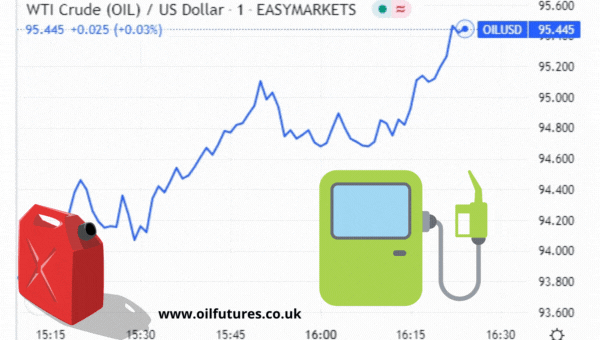The price of oil remains almost static for the second successive week, something that has not been satisfactorily accounted for by market analysts.
Although the speculation is rife about the so-called demand destruction, the US crude inventories did not build last week; on the contrary, they fell significantly, feebly implying that was not the case.
Both the API, American Petroleum Institute, and the EIA, US Energy Information Administration, reported the fall in the US crude inventories. On this occasion, however, there was no dramatic increase in the price of oil, defying the usual pattern.
The most important announcement on the economic front this week was the US GDP growth data for the second quarter from April to June: the US economy, the world's largest, shrunk by 0.9%, recording the second successive contraction in two consecutive quarters; during the first quarter, the figure was 1.6%.
Although the development satisfies the classic definition of a recession, the Biden administration refuses to accept the fact the US is in recession, pointing to the data that contradicts the dreaded term, the recession. It, for instance, says the drop in unemployment rate does not support the existence of a recession.
As the US politicians quarrel over the definition of a recession, even the Wikipedia, waded into the controversy by blocking the editing of the page in its servers.
The tech giants, meanwhile, collectively issued a warning that unless productivity of the employees is not increased in challenging economic conditions, they would be forced to consider layoffs of their respective workforce - as a last resort.
The impact of the prevailing negative sentiments on the US crude inventories remains to be seen; they are due on Tuesday and Wednesday by two independent sources.
The price of LNG, liquified natural gas, meanwhile, has not lost its position to make Europe anxious about its supply in the forthcoming winter months: Russia is cutting off gas to some members of the EU; even those who are in good books of Russia, only get about 40% what they usually do.
The scarcity of gas can only get worse as there is no solution in sight for Russia-Ukraine war. Even those who were supposed to be the reliable substitutes for Russia do not appear to be capable of Russia's role when the demand is high. Australia, for instance, now says it has to prioritize the needs of its own citizens over Europe.
Qatar, the world's largest LNG producer in the world, had been warning about this for months before the war between Russian and Ukraine finally broke out in February; it said its inability to meet the global demand in the absence of Russian gas.
With the price of gas at the present level, it is hard to imagine a substantial fall in the price of oil; many industries switch to gas when the price of oil goes through the roof.
The static oil price is not the only thing that baffles the analysts; the price gap between WTI and Brent remains significant that has not yet been accounted for.







